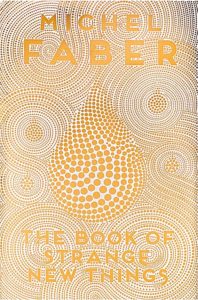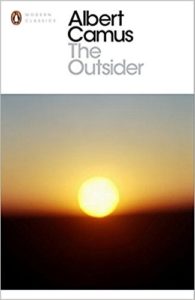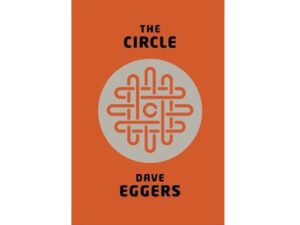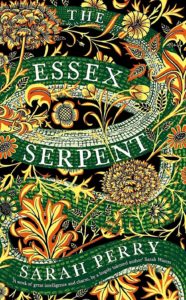Sixth Form Top Holiday Fiction Reads
A2 English: Theory and Independence
In preparation for the A2 coursework module, you have the opportunity to read widely, to choose your own texts and to understand that contemporary study of literature needs to be informed by the fact that different theoretical and critical methods can be applied.
The title ‘Theory and independence’ highlights the important idea that students should have the opportunity to work as independently as possible.
Over the course of year 13, you should read freely and widely from the following book lists.
They have been chosen to help prepare you for the study of Post Colonialism and Marxist critical theory.
POST COLONIALISM
Book of Strange New Things by Michel Faber
The Underground Railroad by Coleson Whitehead
The Outsider by Albert Camus
Meursault Investigation by Kamel Daoud
MARXIST THEORY
The Circle by Dave Eggers
Longbourn by Jo Baker
The Essex Serpent by Sarah Perry
The Underground Railroad by Coleson Whitehead
The Outsider by Albert Camus
Meursault Investigation by Kamel Daoud
Continue reading for further information on each title…

‘I am with you always, even unto the end of the world . . .’
Peter Leigh is a missionary called to go on the journey of a lifetime. Leaving behind his beloved wife, Bea, he boards a flight for a remote and unfamiliar land, a place where the locals are hungry for the teachings of the Bible – his ‘book of strange new things’.
It is a quest that will challenge Peter’s beliefs, his understanding of the limits of the human body and, most of all, his love for Bea.
The Book of Strange New Things is a wildly original tale of adventure, faith and the ties that might hold two people together when they are worlds apart. This momentous novel, Faber’s first since The Crimson Petal and the White, sees him at his expectation-defying best.
Michel Faber’s second masterpiece, quite different to The Crimson Petal and The White but every bit as luminescent and memorable. It is a portrait of a living, breathing relationship, frayed by distance. It is an enquiry into the mountains faith can move and the mountains faith can’t move. It is maniacally gripping (DAVID MITCHELL)
As gripping as any thriller . . . A work of originality and insight (Andrew Billen The Times)
There are some novels that come along, when writing a review seems superfluous and all one wants to do is to grab someone by the shoulders and say: “Look, just read the damn thing!” This is one of them . . . In this thoughtful, deeply moving page-turner, Faber excels himself (Scotsman)
Magnificently bold and addictive . . . a book quite unlike any other I’ve read (Edmund Gordon Sunday Times)
Michel Faber is a truly gifted writer, an addictive storyteller with a nuanced command of language. One of the best things I have read this year. (Literary Review)

Cora is a slave on a cotton plantation in Georgia. All the slaves lead a hellish existence, but Cora has it worse than most; she is an outcast even among her fellow Africans and she is approaching womanhood, where it is clear even greater pain awaits. When Caesar, a slave recently arrived from Virginia, tells her about the Underground Railroad, they take the perilous decision to escape to the North.
In Whitehead’s razor-sharp imagining of the antebellum South, the Underground Railroad has assumed a physical form: a dilapidated box car pulled along subterranean tracks by a steam locomotive, picking up fugitives wherever it can. Cora and Caesar’s first stop is South Carolina, in a city that initially seems like a haven. But its placid surface masks an infernal scheme designed for its unknowing black inhabitants.
It has invaded both my sleeping and waking thoughts . . . Each character feels alive with a singular humanity . . . Whitehead is on a roll, the reviews have been sublime (Bim Adewunmi Guardian)
An engrossing and harrowing novel (Sunday Times)
[A] brutal, vital, devastating novel…This is a luminous, furious, wildly inventive tale that not only shines a bright light on one of the darkest periods of history, but also opens up thrilling new vistas for the form of the novel itself (Alex Preston Observer)
This thrilling tale of escape from a deep south plantation takes in terror, beauty and the history of human tragedy. This uncanny novel never attempts to deliver a message – instead it tells one of the most compelling stories I have ever read. Cora’s strong, graceful hands touch on the greatest tragedies of our history (Cynthia Bond, Guardian)

In The Outsider (1942), his classic existentialist novel, Camus explores the alienation of an individual who refuses to conform to social norms. Meursault, his anti-hero, will not lie. When his mother dies, he refuses to show his emotions simply to satisfy the expectations of others. And when he commits a random act of violence on a sun-drenched beach near Algiers, his lack of remorse compounds his guilt in the eyes of society and the law. Yet he is as much a victim as a criminal.
Albert Camus’ portrayal of a man confronting the absurd, and revolting against the injustice of society, depicts the paradox of man’s joy in life when faced with the ‘tender indifference’ of the world.
‘The story of a beach murder, one of the century’s classic novels. Blood and sand’ J.G. Ballard
‘A compelling, dreamlike fable’ Guardian

The most notorious literary killing of the 20th century takes place on a deserted beach near Algiers, at two o’clock in the afternoon. The murderer in Albert Camus’s first novel, the 1942 classic The Outsider, is white, French and anomic. Questioned about his motives by policemen, lawyers and a priest, he can’t really explain why he did it. Maybe, he says, it was the heat.
Kamel Daoud is a well-known oppositional journalist who lives in Algiers under the threat of a fatwa, and this is his first, wholly astonishing novel. He has created the ultimate Camus mixtape.
The Meursault Investigation is a homage to Camus written in a spirit of thwarted exasperation and badly suppressed admiration. Its author would rather not see Camus as a representative of white racism, but the case for the prosecution has to be met.
‘The Meursault Investigation is perhaps the most important novel to emerge out of the Middle East in recent memory…searing.’ Financial Times
‘An indispensable companion to Camus…superlative writing, beautifully translated…brilliantly metaphorical. For its incandescence, its precision of phrase and description, and its cross-cultural significance, The Meursault Investigation is an instant classic.’ Guardian
‘An impressive, provocative undertaking…that might not prove easy to put down…the polemic is balanced by artistic ingenuity…A relentlessly adroit blend of fire and clinical precision ensures that Kamel Daoud’s iconoclastic deliberation is about far more than a renowned novel by Albert Camus.’ Irish Times
‘Kamel Daoud’s brilliant novel in response to Camus has made this Algerian a global literary star. It’s also earned him a fatwa…The Meursault Investigation redeems Camus’s victim by naming him, giving him an identity. But its more profound achievement is to raise the question: what is this identity? The answer lies with God and philosophy.’ Sunday Times

When Mae is hired to work for the Circle, the world’s most powerful internet company, she feels she’s been given the opportunity of a lifetime. Run out of a sprawling California campus, the Circle links users’ personal emails, social media, and finances with their universal operating system, resulting in one online identity and a new age of transparency.
Mae can’t believe her great fortune to work for them – even as life beyond the campus grows distant, even as a strange encounter with a colleague leaves her shaken, even as her role at the Circle becomes increasingly public …
A gripping and highly unsettling read. (Sunday Times)
Eggers’s writing is so fluent, his ventriloquism of tech-world dialect so light, his denouement so enjoyably inevitable. (Observer)
Prescient, important and enjoyable … a deft modern synthesis of Swiftian wit with Orwellian prognostication’. (Guardian)
The Circle is ‘Brave New World’ for our brave new world … fast, witty and troubling. (Washington Post)
Unputdownable. (Times)

When Cora Seaborne’s husband dies, she steps into her new life as a widow with as much relief as sadness.
Accompanied by her son Francis, she leaves town for Essex, where she hopes fresh air and open space will provide the refuge they need. When they take lodgings in Colchester, rumours reach them that the mythical Essex Serpent, once said to roam the marshes claiming human lives, has returned to the coastal parish of Aldwinter.
As Cora sets out on its trail, she is introduced to William Ransome, Aldwinter’s vicar. Like Cora, Will is deeply suspicious of the rumours, but he thinks they are founded on moral panic, a flight from real faith. As he tries to calm his parishioners, he and Cora strike up an intense relationship, and although they agree on absolutely nothing, they find themselves inexorably drawn together and torn apart, eventually changing each other’s lives in ways entirely unexpected.
A book to make you want to be a better person. (Justine Jordan, The Guardian)
The Essex Serpent is one of the most memorable historical novels of the past decade.
(Nick Rennison Sunday Times)
An irresistible novel that taps the vein of Victorian gothic and British myth
(Daily Telegraph)
The Essex Serpent is shot through with such a vivid, lively sense of the period that it reads like Charles Dickens at his most accessible and fans of Jonathan Strange & Mr Norrell will also find much to love in this engaging, entertaining Gothic novel.
(Charlotte Heathcote Daily Express)

If Elizabeth Bennet had the washing of her own petticoats, Sarah thought, she would be more careful not to trudge through muddy fields.
It is wash-day for the housemaids at Longbourn House, and Sarah’s hands are chapped and bleeding. Domestic life below stairs, ruled tenderly and forcefully by Mrs Hill the housekeeper, is about to be disturbed by the arrival of a new footman smelling of the sea, and bearing secrets.
For in Georgian England, there is a world the young ladies in the drawing room will never know, a world of poverty, love, and brutal war.
“An Austen lover has the satisfaction of matching the novels chapter for chapter. Lovely.” (Observer)
“To twist something so familiar into something quite fresh is impressive. Baker takes ownership of this world without mimicking Austen’s style, asserting instead her own distinctive, authentic voice. Longbourn is not just nicely packaged fan fiction, or an Austenian Downton Abbey; it’s an engrossing tale we neither know nor expect.” (Daily Telegraph)
“Inspired…Baker has written an intoxicating love story but, also like Austen, the pleasure of her novel lies in its wit and fierce intelligence. Longbourn is a profound exploration of injustice, of poverty and dependence, of loyalty…a novel that contrives both to provoke the intellect and, ultimately, to stop the heart…” (Guardian)
“Longbourn is a fantastic feat of imagination, unflinching in its portrayal of war and the limitations of life for a servant – a novel you will want to shelve with the original classics you plan to read again and again.” (Psychologies)
